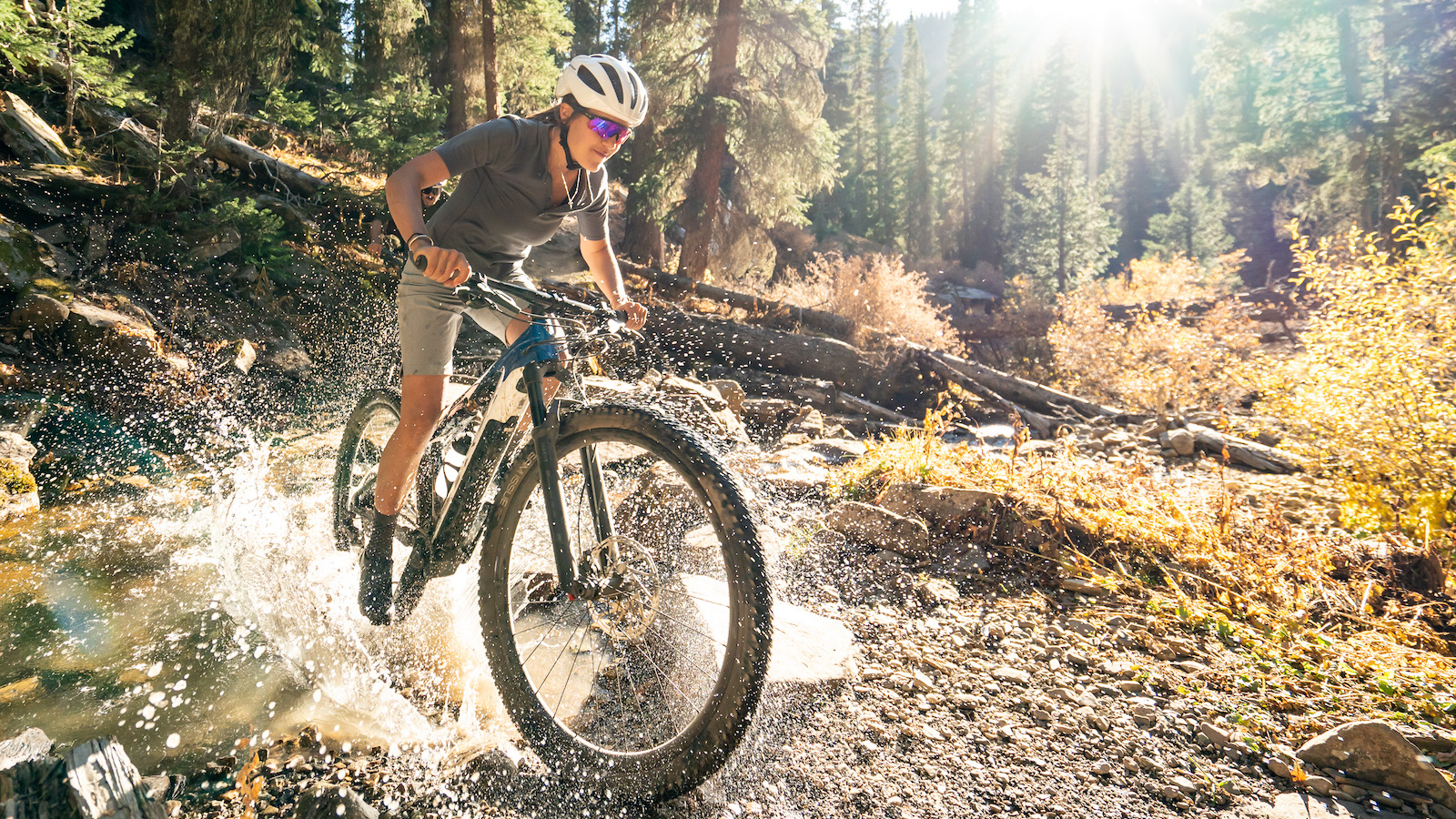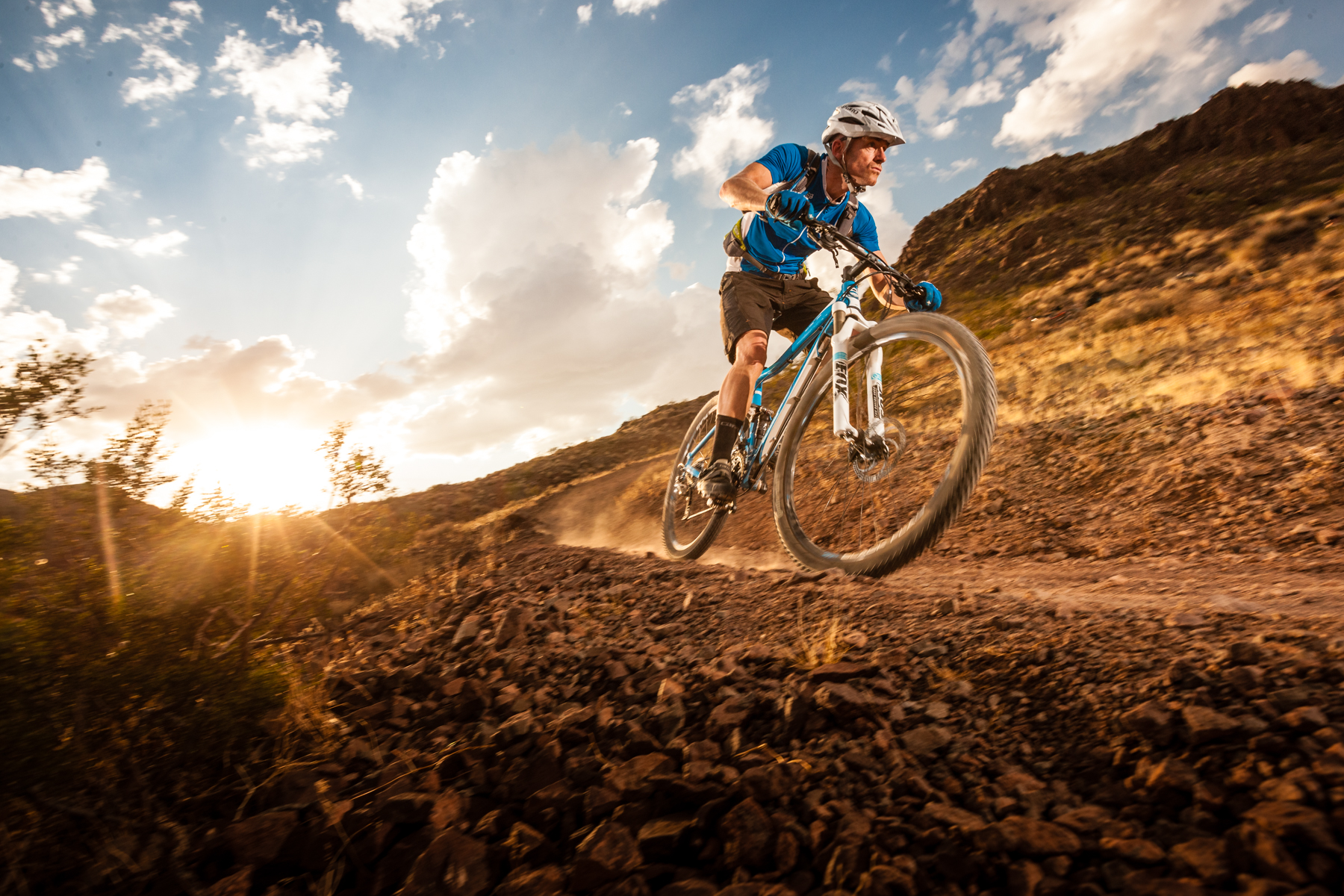Bespoken Word – shell shock and the murky morality of biking
Instant indignance turns to deeper thoughts this week as Guy Kesteven confronts some potential hard truths and ruminates about how much cycling is really pedaling towards saving the planet.

All these questions and dilemmas have been swilling uneasily around in my head for a long time but they peaked with this week’s news of British Cycling signing up Shell as a long term supporter. Yeah Shell, the petro chemical giant with a very checkered history of involvement in countries they’ve been pumping oil and other resources out of. And who returned an $11.5 billion profit for the second quarter of this year as fuel prices rocketed and many people’s personal finances tanked.
This comes on the heels of some controversial British Cycling statements on everything from whether members should ride on the Bank Holiday of the Queen’s funeral and transgender athletes. Plus, there’s long been a general feeling that mountain biking is very much treated as at best a sideshow by British Cycling compared to other disciplines – particularly track racing which has far smaller user numbers, but always brings in the big shiny medals that get on the news.
So I didn’t hesitate on jumping on the bandwagon of dismay, posting my outrage all over social media, cancelling my membership and signing an open letter of objection that had started circulating immediately. And for the most part, that seems to have been the immediate reaction of most people – especially mountain bikers and/or those who don’t have to be a British Cycling member to enter races. But there were also enough people commenting and contacting me to make me think about the wider landscape of cycling, sponsorship, sports/greenwashing and our actual impact beyond the initial knee jerk. And not just think, but think honestly.

Shell shock
Any attempt to research a company in a contentious industry like petrochemicals/energy/earth resources tends to just throw up extremes of viewpoint. But while it’s probably wise to ignore the hysterical end of the green spectrum there’s a lot of evidence that Shell has some serous skeletons rattling in its cupboards. And I’m not just talking about the compressed dinosaur bones that create the oil it’s been making obscene profits from.
However, friends in associated industries told me that compared to other similar companies the eco aspects of the contracts they had to adhere to with Shell were far stricter and more closely monitored. It seems that Shell are also investing about 6-8 percent of their R&D budget into renewable energy sources and they’ve signed up to the Paris climate change agreement. So while they’re still keen on increasing their gas production for the foreseeable future, in a very oily sea they float closer to the eco surface than some.
The sponsorship agreement with British Cycling – who’ve been desperate to get corporate funding to replace HSBC – “also includes specific investment from Shell UK to support a new program – to be named ‘Limitless’ which aims to increase opportunities for disabled people in cycling. British Cycling have also said Shell will also help support BC’s transition to an electric fleet of vehicles. And while many people are understandably leveling ‘green washing’ and ‘sports washing’ accusations at Shell these are undoubtedly very good initiatives. And presumably ones that would be hard to fund without diverting cash from the core objectives of British Cycling like winning track medals.
I’m not even being cynical here, because it’s success on the track at World Championships and particularly Olympics that means BC gets a disproportionately high amount of government funding. And while we’re having that reality check, it makes sense for them to focus on track not MTB because when it comes to potentially winning a whole ton of medals in a very controlled environment with a very narrow and specific skill/fitness focus, only swimming comes close to pedaling round a wooden oval with one gear and no brakes.

Self Ride-teous
But the real question here was neatly raised by my mate Kieran on Facebook, “given that about 90 percent of BC adult members also drive a car (and about 97 percent have driving licences – BC figures from 2019), isn’t all this outrage just a wee bit sanctimonious?” Other people chimed in with the fact that carbon fiber bikes/kit and the trend of rampant lust for new components shipped from the far side of the world rather than just riding old stuff to death isn’t exactly eco either.
And while there’s a whole argument that there’s a big difference between personal choice and the governing body of our sport sliding under covers with a crude oil company I think Kieran has a very valid point about many cyclists being sanctimonious hypocrites. I know I certainly am.
Utility/urban cycling is undoubtedly a great way to move people and stuff around in a much lower impact way. Even if you account for all the recharge and production/disposal issues e-bikes create far less pollution than bigger e-vehicles and anything powered by fossil fuels. Riding a bike for sport/recreation seems like a lot more environmentally friendly and less intrusive thing to do for fun than firing up a motorbike. But if you drive an hour or more to a forest to ride your bike, the sums suddenly get less eco friendly. And even if you ride from home, most of us buy new kit and upgrade bikes at a far higher frequency than strictly necessary to just go out and ‘enjoy nature’. Oh and I fully realize that it’s people like me tempting you with several new ‘next best things’ every damn day that should really be standing in the corner thinking about what we’ve done when it comes to promoting sustainable thinking.

Truth hurts
That’s before we start talking about landscape impact and increased risks to other users from racing mates or Strava on public trails. Aspects that are weighing increasingly heavily on my mind since I accidentally killed a rabbit while flat out on a ‘segment’ on my gravel bike a couple of months ago. Or when I found myself axle deep in a new rut section last week. An erosion promoting disaster that had been gouged into an established, much more sustainable trail at the worst possible place for public visibility in an area that’s already a conflict zone with other users. So while I’ll argue the toss with a hiker that I’m causing a lot less disturbance to wildlife than her dog running wild in the woods, I think most of us know we could certainly do better.
And it’s certainly not just mountain biking either. I gave up riding in larger groups on the road years ago after being appalled how entitled, arrogant and ignorant some people around me were being to other road users. You can say what you like about how we have a perfect right to be on the roads, but I guarantee joining a sportive or reliability ride that idiots are treating like a closed road race event will soon explain why a large number of drivers and media outlets hate us.
And if you’re hoping that this is the bit where I come out with some profound answer or bright shining path to the future then I’m going to have to let you down badly. All I can suggest is that we all start thinking more about how we behave and the impact it potentially creates. But there I go being a sanctimonious hypocrite again, because the next thing I write will probably be a temptation to try a new thing rather than the perfectly OK thing you have already. And my next ride is likely to include a lot of unsanctioned trails. I don’t even know whether I should be filling up my van with Shell diesel because at least a tiny fraction of their obscene profits might get a disabled athlete onto a bike. Or whether I should boycott them for ‘sportswashing’.
All I do know is that I’m very glad I've got riding to help me de-stress when my head feels ready to burst…

Guy Kesteven has been working on Bike Perfect since its launch in 2019. He started writing and testing for bike mags in 1996. Since then he’s written several million words about several thousand test bikes and a ridiculous amount of riding gear. He’s also penned a handful of bike-related books and he reviews MTBs over on YouTube.
Current rides: Cervelo ZFS-5, Specialized Chisel, custom Nicolai enduro tandem, Landescape/Swallow custom gravel tandem
Height: 180cm
Weight: 69kg
